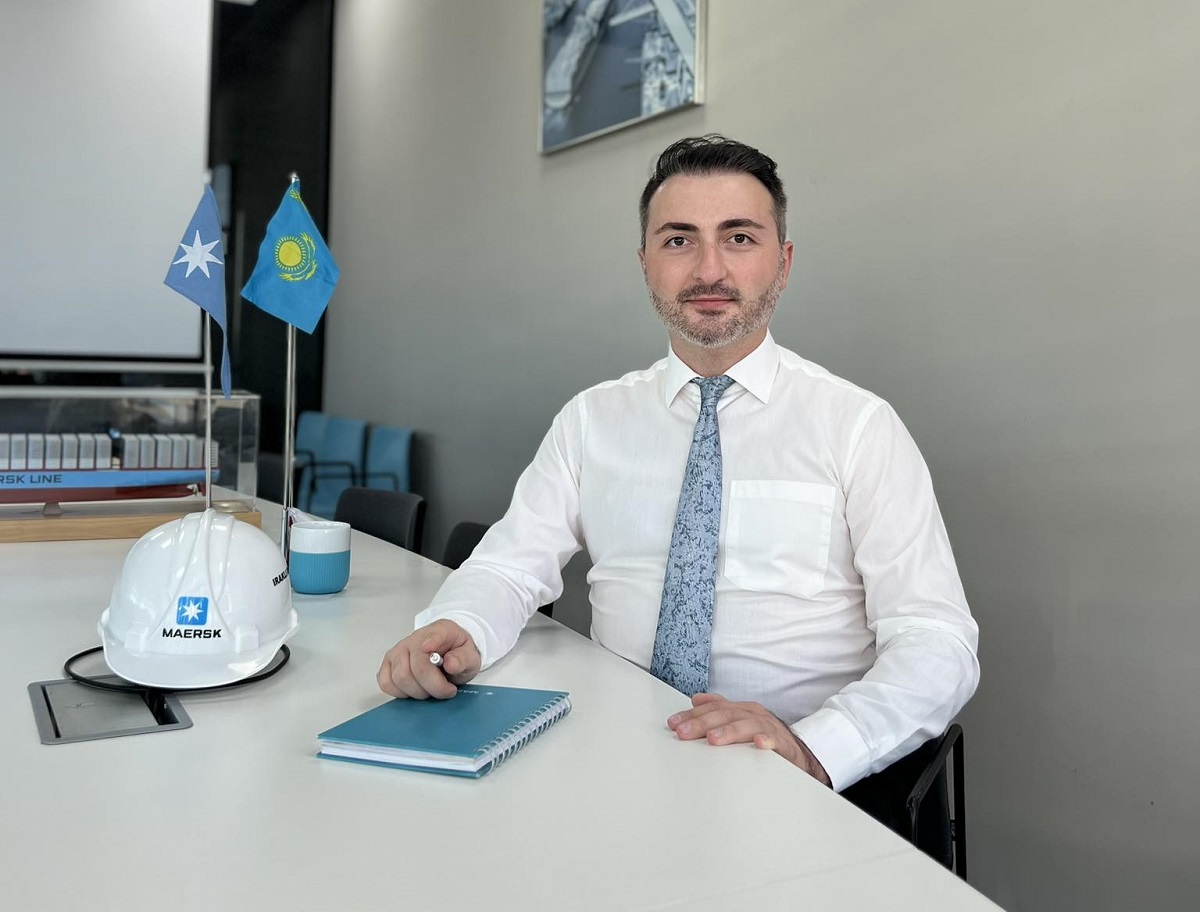BAKU, Azerbaijan, May 28. Maersk is actively collaborating with key stakeholders involved in the Middle Corridor project, primarily railway companies such as Kazakhstan Railways and Azerbaijan Railways, Irakli Danelia, Central Asia and Caucasus Region Business Development Manager at Maerks, told Trend in an exclusive interview.
"We are also working closely with Chinese counterparts to establish a competitive and efficient corridor for local customers, regional clients, and international companies. Our objective is to facilitate seamless transportation services from east to west, with a particular emphasis on supporting and enhancing logistical solutions for local markets," he said.
According to the development manager, previously, Maersk's main focus was on transit cargoes between China and Europe. However, now the company has expanded its focus to include local markets such as Azerbaijan, Kazakhstan, Uzbekistan, Turkmenistan, and others.
"In September 2023, we officially launched the ocean-rail connect product, which provides connectivity for Central Asia through the Poti seaport, spanning Georgian, Azerbaijani, and Kazakhstani territories, reaching Uzbekistan and Tajikistan. Additionally, we are developing direct solutions from China to Central Asia. Thus, the Middle Corridor initiative is a focal point for us, encompassing both the Western and Eastern ends of the corridor," Danelia noted.
He pointed out that, currently, Maersk has strategic cooperation agreements with countries including Kazakhstan, Azerbaijan, and Georgia.
"This means we are planning to shift our regular business operations to this corridor, which will undoubtedly support the macroeconomic development of these countries and enhance the potential of logistical services in Central Asian and Caucasian countries. When it comes to logistics, our focus is not solely on transportation from point A to point B. Instead, we aim to provide additional services such as first-mile and last-mile solutions within these countries. This approach signifies our commitment to developing the corridor and the countries involved from a comprehensive logistical perspective," he explained.
Danelia further noted that Maersk collaborates with all seaports along the Middle Corridor, including Baku, Alat ports (both Azerbaijan), and Aktau port (Kazakhstan). "Each port determines its own capacity, and as a contributor to the Middle Corridor, we will support them with our cargo flows. This benefits all parties involved".
According to him, when Maersk supports railway companies with their cargo flows, it also indirectly supports the performance of seaports.
"Increasing cargo flows within the corridor is our shared goal, leading to success for our businesses, both ours and theirs, with more scale, more efficiency, and thus more reliability. We are open to discussing and identifying ways to further contribute to initiatives from ports like Alat Port. Currently, this is the solution available to us, and we actively utilize Alat Port for our operations," he said.
Danelia noted that Maersk is primarily focused on developing the Middle Corridor through ports.
"For exports, we transport cargo from Central Asia and Azerbaijan by rail to Poti, a process we have been carrying out for decades. From Poti, the cargo can be shipped directly to various destinations worldwide, including Türkiye, Europe, Africa, the Far East, and the Americas. The same process applies for imports," he said.
The regional manager pointed out that the demand for the Middle Corridor is steadily increasing.
"This demand primarily stems from Caucasian countries seeking to transport cargo from China through the Middle Corridor to Baku. We handle significant volumes of containers from China to various destinations such as Baku, Georgia, Türkiye, and further into Europe. Additionally, there is growing interest from Japan and Korea in connecting through China to the Middle East and delivering to Caucasian countries and Europe. Furthermore, we are also focused on export-import flows from Central Asia, with the Middle Corridor serving as a crucial route," Danelia said.
Further speaking, Irakli Danelia noted that Maersk believes the Middle Corridor will establish a strong position in the West-East and vice versa logistical system, facilitating seamless trade between regions.
The official pointed out that the demand for the Middle Corridor is steadily increasing, stemming from Caucasian countries seeking to transport cargo from China through the Middle Corridor to Baku.
"We handle significant volumes of containers from China to various destinations such as Baku, Georgia, Türkiye, and further into Europe. Additionally, there is growing interest from Japan and Korea, connecting through China to the Middle East and delivering to Caucasian countries and Europe. Furthermore, we are also focused on export-import flows from Central Asia, with the Middle Corridor serving as a crucial route," Danelia explained.
Maersk's main focus is on delivering containerized cargoes, therefore, the company collaborates with cargo owners, transport, and logistical companies locally to handle already containerized cargo, he noted.
"Additionally, we are actively encouraging exporters in the region to containerize and convert their bulk commodities, highlighting the advantages of containerization," Danelia added.
Regarding the World Bank's report and EBRD's research, Danelia pointed out that it is indeed relevant and realistic to consider the costs involved.
"However, the implementation of such initiatives depends on the willingness of markets to act swiftly, as time is of the essence in this matter. The primary focus should be on converting export bulk cargo into containerized shipments. This involves rapidly increasing the use of containers, with the goal of optimizing cargo handling," he said.
Maersk believes that all industry stakeholders should dedicate time and efforts to this endeavor, as it is crucial yet challenging, he added.
"In Central Asia, the majority of exported goods are traditionally transported in bulk. Therefore, there is a need to raise awareness about the advantages of containerization, which include standardization and streamlined operational processes. Additionally, stakeholders should emphasize the economic benefits of containerization, especially within a multimodal transit corridor like the Middle Corridor," Irakli Danelia said.







